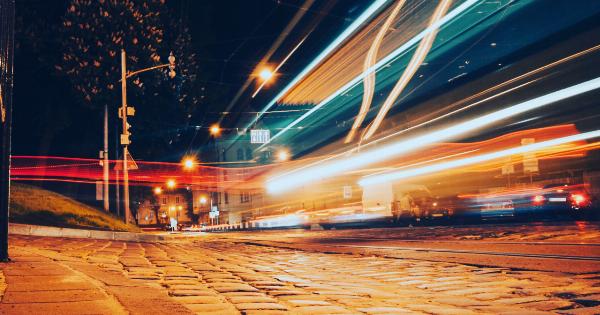Carbohydrates are the body’s primary source of energy. They provide fuel for our muscles and brain, allowing us to perform daily activities and maintain optimal cognitive function.
However, in recent years, low-carb diets have gained popularity, leading many people to drastically reduce their carb intake or avoid carbs altogether. While some individuals may benefit from a low-carb approach, others may experience negative effects due to a carb deficiency. In this article, we will explore three signs that may indicate you are carb-deficient.
1. Constant Fatigue and Low Energy Levels
If you find yourself feeling tired and lethargic most of the time, it could be a sign of carb deficiency. Carbohydrates are essential for providing quick and easily accessible energy for the body.
When you consume carbs, your body breaks them down into glucose, which is then used by your cells as fuel. Without an adequate supply of carbs, your energy levels can plummet, leaving you feeling exhausted and unable to perform at your best.
Carb-deficient individuals may also experience difficulty concentrating and brain fog, as the brain relies heavily on glucose for optimal functioning.
If you notice a persistent lack of energy and mental clarity, it may be time to reevaluate your carbohydrate intake.
2. Cravings for Sugary and Starchy Foods
One of the most common signs of carb deficiency is intense cravings for sugary and starchy foods. When you restrict carbs, your body may start to crave them as a way to compensate for the energy deficit.
This is because carbohydrates stimulate the release of serotonin, a neurotransmitter responsible for feelings of happiness and well-being. When carb intake is limited, serotonin levels can drop, leading to cravings for comfort foods that can quickly boost serotonin production.
If you find yourself constantly reaching for sweets, bread, pasta, or other high-carb foods, it may be a sign that your body is trying to tell you it needs more carbohydrates.
3. Poor Physical Performance and Slow Recovery
Carbohydrates play a vital role in athletic performance and exercise recovery. During exercise, your muscles rely on glycogen, the stored form of carbohydrates, to fuel intense physical activity.
When glycogen stores are depleted, either due to low carb intake or prolonged exercise, your performance may suffer.
Carb-deficient individuals often experience decreased endurance, slower recovery times, and reduced overall strength.
If you find that your workouts have become more challenging, your muscles feel weak, and you are not seeing the progress you desire, it could be a sign that you are not getting enough carbs to support your physical activities.
Conclusion
While low-carb diets can be effective for some individuals, carb deficiency can have negative effects on energy levels, cravings, and physical performance.
If you are experiencing constant fatigue, intense cravings for sugary and starchy foods, or a decline in athletic performance, it may be worth reevaluating your carb intake and ensuring you are providing your body with enough fuel to thrive.
























